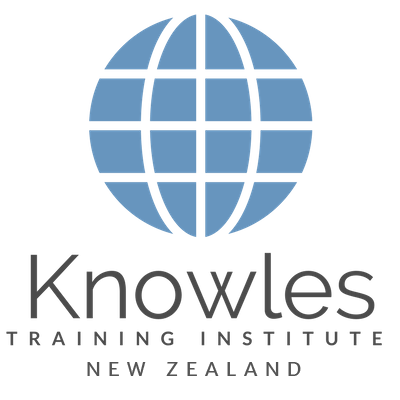This Meeting Minutes Writing Skills Training Course
is also available in Auckland, Christchurch, Wellington, Hamilton, Tauranga, Lower Hutt, Dunedin, Palmerston North, Napier Porirua.
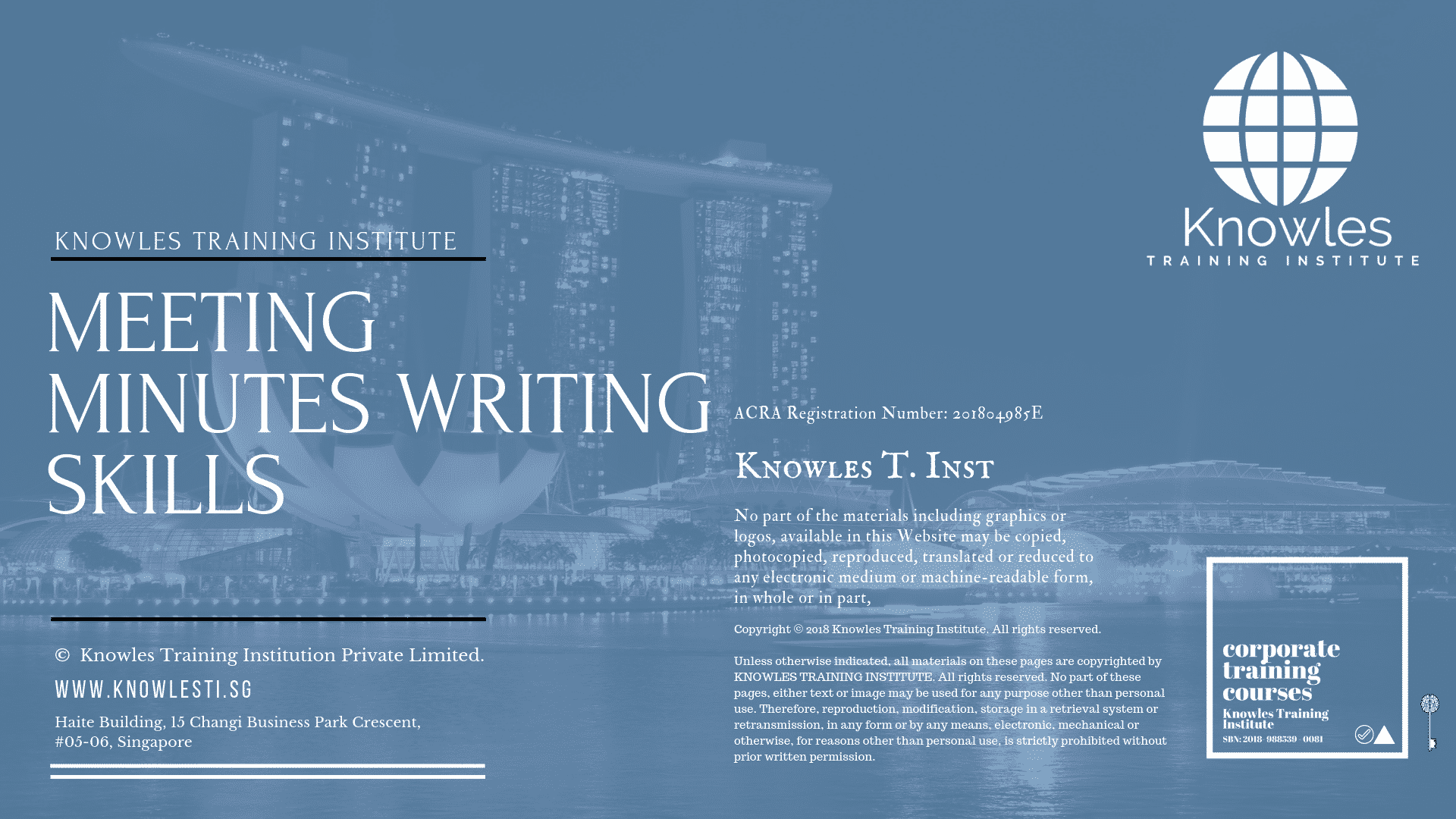
About This Meeting Minutes Writing Skills Training Course in New Zealand
Meeting Minutes Writing Skills Course in New Zealand
If you are in charge of keeping tabs on the flow of the meeting, then you have to learn to write the minutes of a meeting. Minutes writing follows a format that is depending on what a company requires. An individual’s writing skills must be sufficient to produce a complete and comprehensive recounting of a meeting.
Who Should Attend This Meeting Minutes Writing Skills Course in New Zealand Workshop
This Meeting Minutes Writing Skills Course in New Zealand workshop is ideal for anyone who would like to gain a strong grasp and improve their Meeting Minutes Writing Skills.
All Staff Within An Organisation
Managers
Team Leaders
Executives
Assistants
Officers
Secretaries
Group Size For This Meeting Minutes Writing Skills Course in New Zealand
The ideal group size for this Meeting Minutes Writing Skills course in New Zealand is:
Minimum: 5 Participants
Maximum: 15 Participants
Course Duration For This Meeting Minutes Writing Skills Course in New Zealand
The duration of this Meeting Minutes Writing Skills course in New Zealand workshop is 2 full days. Knowles Training Institute New Zealand will also be able to contextualised this workshop according to different durations; 3 full days, 1 day, half day, 90 minutes and 60 minutes.
2 Full Days
9 a.m to 5 p.m
Meeting Minutes Writing Skills Course in New Zealand Benefits
Below is the list of course benefits of our Meeting Minutes Writing Skills course in New Zealand
Minutes Writing Course in New Zealand Benefits – Part 1
- Meeting minutes offer legal protection and legal experts will maintain that if an action isn’t in the minutes, it didn’t happen.
- Minutes are important details that you can’t ignore if you want to keep your business in line with state laws, and to back up your tax returns.
Minutes Writing Course in New Zealand Benefits – Part 2
- Minutes represent the actions of the Board and company leadership, and are considered legal documents by auditors and the courts.
- Even though there is no standardized format for meeting minutes, the IRS and the courts consider it important that you made a reasonable effort to report the facts of the meeting.
Minutes Writing Course in New Zealand Benefits – Part 3
- Good meeting minutes help drive a plan of action for your leadership team and employees. They clarify how, when, why, and by whom decisions were made.
- Minutes record meeting decisions, which makes them a useful review document when it comes time to measure progress.
Minutes Writing Course in New Zealand Benefits – Part 4
- Act as an accountability tool because they make it clear who’s duty it was to perform which action.
- Gives the Board member some possible legal protection if the majority approved an issue and a lawsuit is filed.
Minutes Writing Course in New Zealand Benefits – Part 5
- In situations of critical importance, and where the record is important, you may need to take detailed minutes.
- Minutes are key to evidencing the directors’ decisions on behalf of the company to enter into transactions and execute documents.
Minutes Writing Course in New Zealand Benefits – Part 6
- The production of board minutes is evidence that the directors are discharging their statutory fiduciary duties to act honestly and in good faith with a view to the best interests of the company.
- Provide evidence of other specific requirements being met, particularly on a subsequent insolvency.
Meeting Minutes Writing Skills Course in New Zealand Objectives
Below is the list of course objectives of our Meeting Minutes Writing Skills course in New Zealand
Minutes Writing Course in New Zealand Objectives- Part 1
- Help you get started with writing and preparing effective meeting minutes
- Before you start taking notes, it’s important to understand the type of information you need to record at the meeting
Minutes Writing Course in New Zealand Objectives- Part 2
- Make sure that you are ready for the meeting because the last thing you would want is to arrive late and without the necessary documentation
- Remember that your notes do not have to consist of a word-for-word record of what everyone says in the meeting
Minutes Writing Course in New Zealand Objectives- Part 3
- Listen to each point first before trying to write everything down and you will be able to figure out what needs to be recorded, and to summarize what was said
- Take accurate, professional minutes and save time using meeting minutes templates
Minutes Writing Course in New Zealand Objectives- Part 4
- Make sure your minute-taker sufficiently describes how Board members arrived at reasonable decisions
- Provide valuable information to those team members who aren’t able to attend the meeting
Minutes Writing Course in New Zealand Objectives- Part 5
- Lays a foundation that helps ensure your success upon entering the meeting room
- Adjust listening skills and thinking patterns, and home in on what is really being discussed
Minutes Writing Course in New Zealand Objectives- Part 6
- Turn meeting conversations into a valuable road map even when the conversation is difficult to track
- Produce minutes that remind everyone what needs to happen next, and assure them that their meeting time was well spent
Course Content For This Meeting Minutes Writing Skills Training Course in New Zealand
Below is the list of course content of our Meeting Minutes Writing Skills training course in New Zealand
Minutes Writing Course in New Zealand Content- Module 1
- Capture the essence of the meeting, including details such as decisions made, next steps planned, and identification and tracking of action items
- Ensure the agenda and meeting are well thought out as it makes minute taking much easier
Minutes Writing Course in New Zealand Content- Module 2
- Get a copy of the meeting agenda and use it as a guide or outline for taking notes and preparing the minutes with the order and numbering of items on the minutes of meeting matching those of the agenda
- Be sure to ask the Chair of the committee or Board what their expectations are of your role during the meeting, as well as the type of detail he/she expects in the minutes
Minutes Writing Course in New Zealand Content- Module 3
- Having an outline based on the agenda makes it easy for you to simply jot down notes, decisions
- If you know the meeting attendees, you can check them off as they arriveor circulate an attendance list they can check-off themselves
Minutes Writing Course in New Zealand Content- Module 4
- Record decisions or notes on action itemsin your outline as soon as they occur to be sure they are recorded accurately
- If the group moves on without making a decision or an obvious conclusion, ask for clarification of the decision and/or next steps involved
Minutes Writing Course in New Zealand Content- Module 5
- Don’t try to capture it all and be sure to simply write (or type) just the decisions, assignments, action steps, etc.
- Record itif you are concerned about being able to keep up with note taking, consider recording the meeting
Minutes Writing Course in New Zealand Content- Module 6
- Review your outline and if necessary, add additional notes or clarify points raised. Also check to ensure all decisions, actions and motions are clearly noted
- Once you’ve made any required revisions, the minutes will then need to be stored for future reference
Meeting Minutes Writing Skills Course in New Zealand Value Added Materials
Each participant will receive the following materials for the Meeting Minutes Writing Skills course in New Zealand
Meeting Minutes Writing Skills Course in New Zealand Learner’s Guide
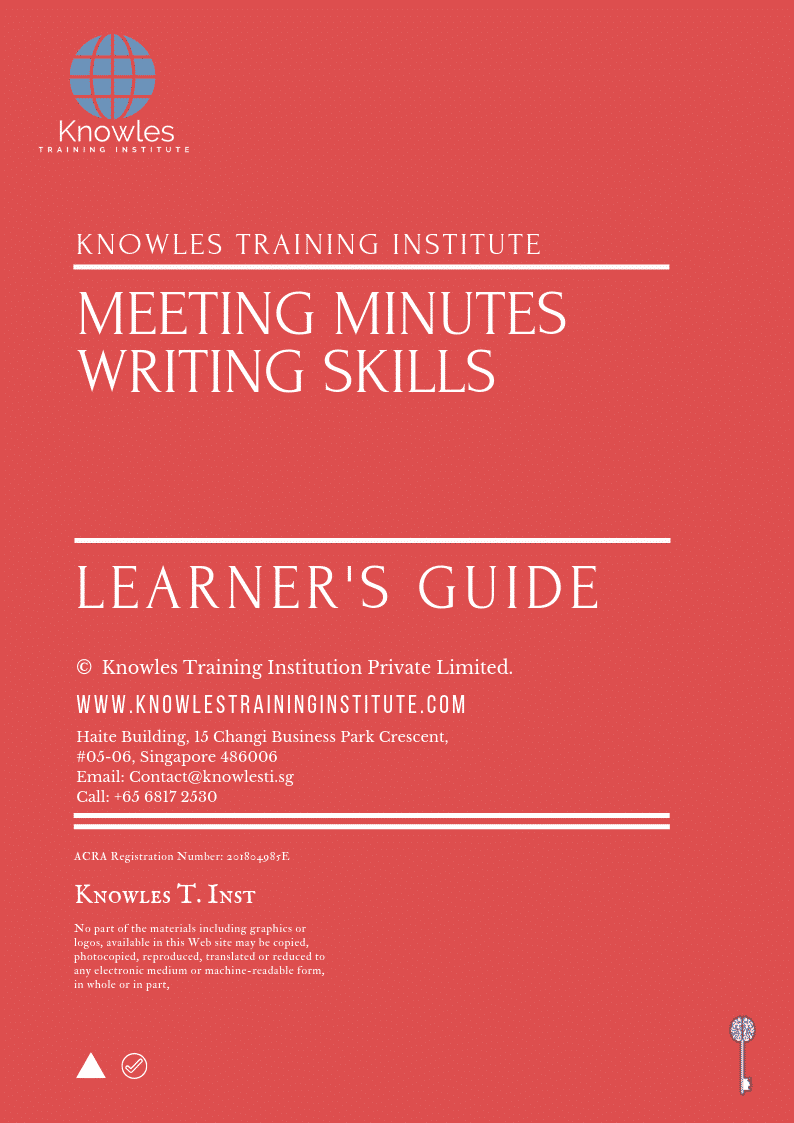
Meeting Minutes Writing Skills Course in New Zealand Handouts
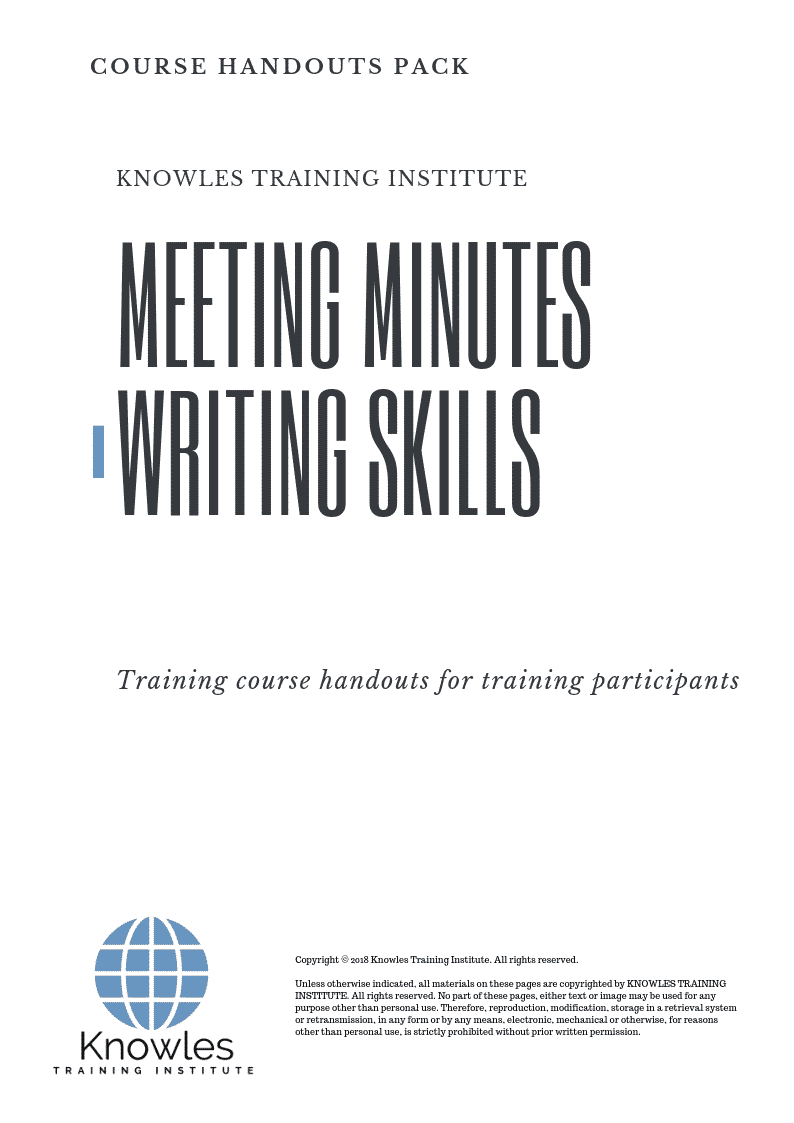
Meeting Minutes Writing Skills Course in New Zealand PPT Slides Used During Course
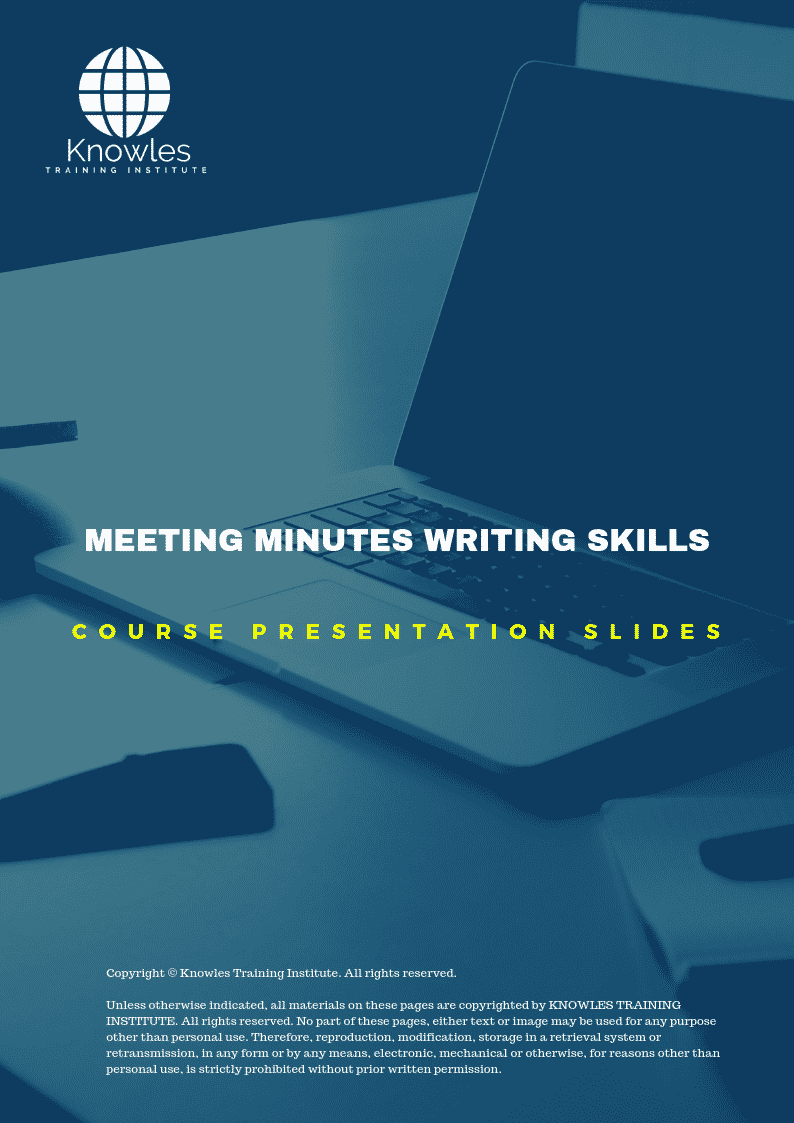
Meeting Minutes Writing Skills Course in New Zealand Certification
Each course participant will receive a certification of training completion
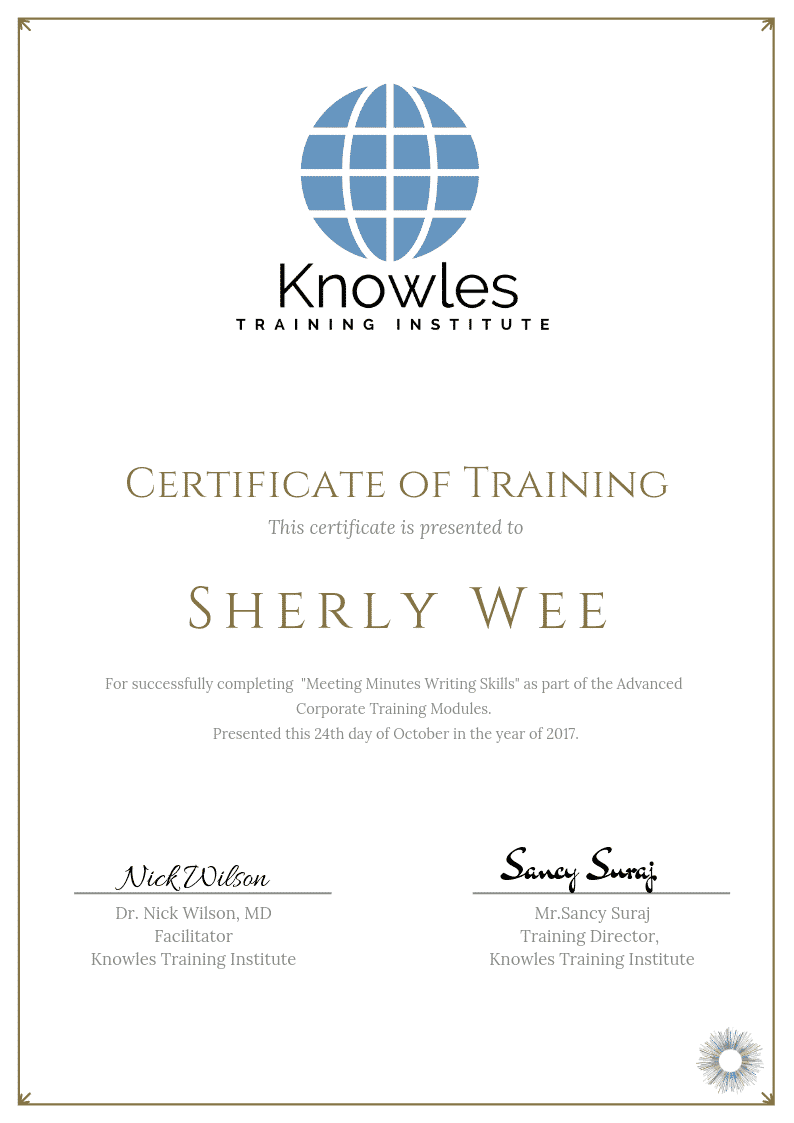
Course Fees For Meeting Minutes Writing Skills Training Course In New Zealand
There are 4 pricing options available for this Meeting Minutes Writing Skills training course in New Zealand. Course participants not in New Zealand may choose to sign up for our online Meeting Minutes Writing Skills training course in New Zealand.
- USD 679.97 For a 60-minute Lunch Talk Session.
- USD 289.97 For a Half Day Course Per Participant.
- USD 439.97 For a 1 Day Course Per Participant.
- USD 589.97 For a 2 Day Course Per Participant.
Discounts available for more than 2 participants.
Upcoming Meeting Minutes Writing Skills Training Course in New Zealand Schedule
Contact us for the latest Meeting Minutes Writing Skills course in New Zealand schedules:
Email: contact@knowlesti.nz
Message:
Download Meeting Minutes Writing Skills Course in New Zealand Brochure
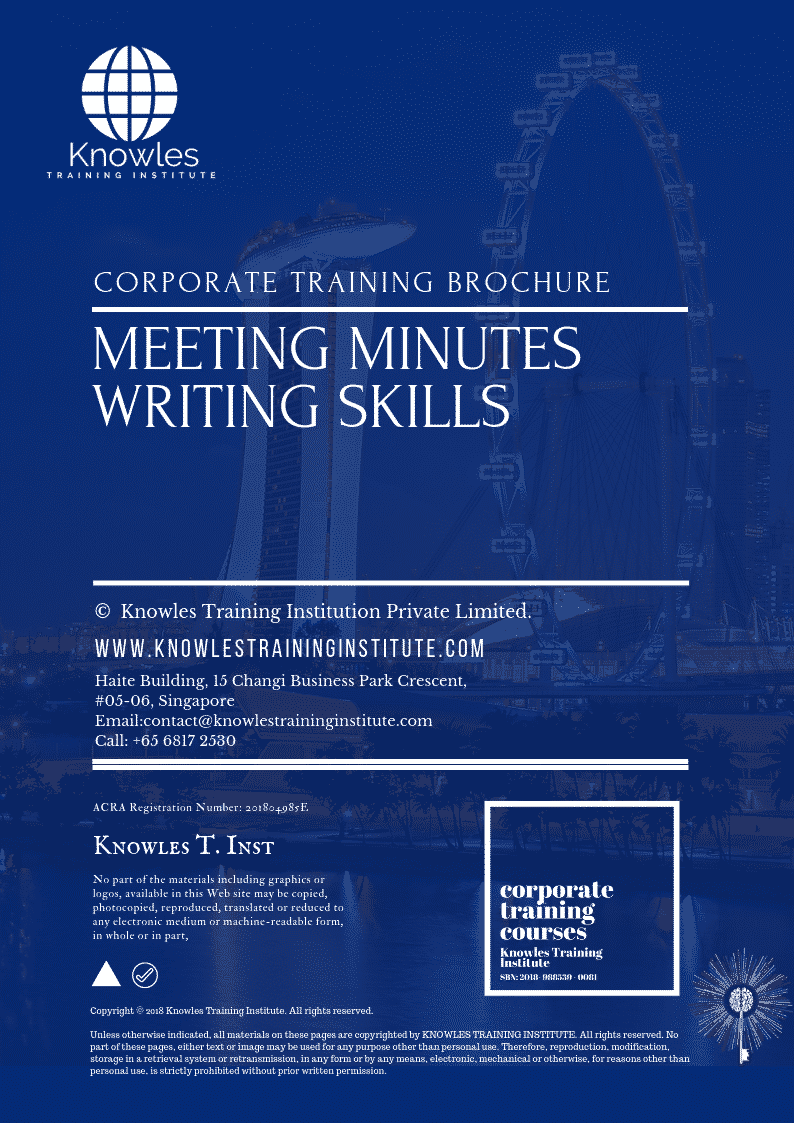
Request for this Meeting Minutes Writing Skills course in New Zealand brochure. Fill up the short information below and we will send it to you right away!
Post Training Support: A vast majority of training does not have any effect beyond 120 days. To work, training has to have a strong pre- and post-training component. Post-training reinforcement helps individuals to recall the understanding and ask questions.
Blended Learning: Learning does not occur in the classroom. Virtually everybody prefers distinct ways of learning. Successful learning should have a multi-channel, multi-modal strategy.
- We Understand The Industry: We’ve got a profound comprehension of the business, business design, challenges, strategy and the that our participants are in and have designed the courseware to cater to their professional needs.
- Course Content: Knowles Training Institute’s material is relevant, of high quality and provide specific learning results. Participants will leave the training course feeling as they have gained a strong understanding and will also be in a position to execute what they have learned sensibly.
Course Development — The workshop modules follow a systematic and logical arrangement. This structure helps to ensure that the course material allows the facilitators to deliver the course in a logical arrangement. Consider the subjects as building bricks into learning, our facilitators slowly build towards a comprehensive picture of this entire topic.
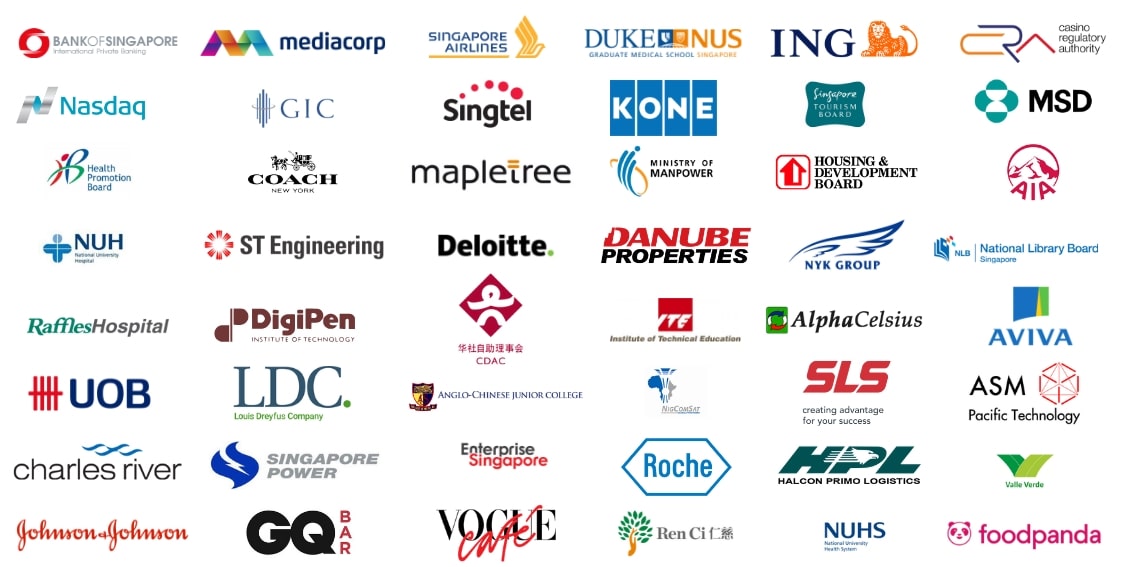

Minutes Writing Course in New Zealand Enquiries
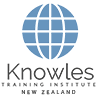
Fill up the form and we will get back to you in less than 1 working day.
Alternatively, give us a call to have one of our training consultants contact you. Our corporate training courses can be contextualized to meet your organization’s training needs. Leverage on our large pool of professional trainers and consultants for your organization’s training needs.
Email: contact@knowlesti.nz
We Guarantee 100% Privacy. We Respect Your Privacy. Your Information Will Never Be Shared.
